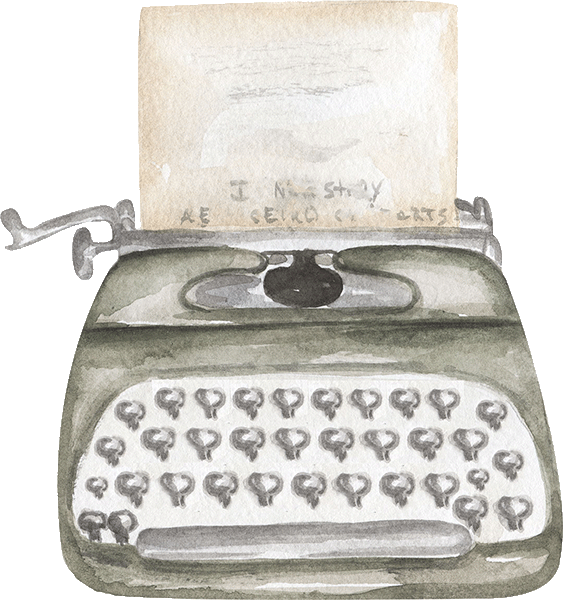As writers, whether we’re independent or working towards being published traditionally, we’re often given a piece of advice: know your market.
This basically means “know who you’re selling books to.” Don’t be a person who says, “Oh, yeah, everyone will like my book.” Instead, focus in on the best readers for your novel—and sell to them.
This is an excellent piece of advice which every writer needs to hear. However, it can be hard to determine exactly who would want to buy your books. Here are a few tips for figuring that out!
5 Tips for Finding Your Market
1: Know your niche—and then start reading books from that niche.
Do you write fantasy? Romance? Fantasy with romantic elements? Fantasy with romantic elements which mainly focuses on the heroine’s journey? Fantasy with romantic elements which mainly focuses on the heroine’s journey to learn how to be a professional dragon-trainer?
Though genre can sometimes be a broad term—for instance, speculative fiction can encompass dystopian, science fiction, fantasy, and paranormal—make it more specific. Find your niche, and then find books that are like your book and read them.
Now, you won’t always be able to. But creating a new niche is going to be pretty impossible, both from an independent and traditionally published standpoint.
Now, here’s an example. For years I thought my first novel The Dressmaker’s Secret was uncategorizable, but then I realized I could and should do it.
TDS is a Christian historical women’s fiction novel. Though it has romantic elements, I wouldn’t categorize it as a straight romance novel. It’s a family saga which might remind readers of a BBC period drama.
Already I’ve got a bit of a niche to squeeze into!
2: Find out who is reading those other books in your niche—and why!
If you’re one of the readers of your genre, you’ve got something to work with, at least. But either way, try doing a survey of your bookish friends (on Goodreads, through your blog, etc.) and looking at reviews of novels in your niche to see who is reading these stories, why they picked them up, etc.
The Dressmaker’s Secret mainly appeals to upper young adult and new adult audiences.
I was able to glean this information from reviews of the book itself, of course, so I had a bit of an advantage. But as I decide who to market to with my work-in-progress WWII novels, I looked at readers of some books in the niche which I enjoyed – novels by authors such as Sarah Sundin and Melody Carlson.
3: Create an ideal reader character profile.
You’ve probably heard this before, but it is excellent advice. (I also like writing an “ideal review” to give you an idea of what you’re going for as far as reader opinions.)
I don’t go as detailed or creative as many writers when it comes to reader profiles. However, I do like to do something very basic.
For instance, I’ll go with something along the lines of, “My ideal reader is a Christian young adult who loves history, drama, and all things BBC. She reads a lot of historical fiction and romance, and she loves reading books that are character-strong and tackle tough themes.” It could be a lot more polished than that, but that’s a good start.
Now, obviously that’s heavily idealized, but something like that will give you a good place to start
4: Find out where your readers hang out & serve them there.
What social media channels do they frequent? When are they likely to check their social media? What kind of things would they be tempted to sign up to an email list for? What colors and images and fonts appeal to them?
You can’t answer all these questions with assurance, but you can do your best and then tweak your marketing as you see the effects of it.
Your primary duty once you discover where to reach your audience is to serve them unselfishly. Write content that will appeal to them and their problems. The best way to grow an audience is through selflessness!
5: Make major decisions about the book with your target audience in mind!
Should your leads end up together? If you write romance, that’s set in stone, but if the romance is such a subplot, must they?
Look at your audience. If you’re writing for people who are looking for an adventure with a bit of a happily-ever-after-esque sweetness on the side, you’ll probably not want to disappoint them.
However, your audience is likely to be fine with it if they were there to see the character improve as a person, not add another individual to their messy life.
This will lead to books that are easier to sell – either to readers or to a publishing company or both!
Thanks so much for reading this post! I hope you enjoyed reading it as much as I enjoyed writing it. I’m so excited to hear from you in the comments below.
TTFN!
~Kellyn Roth~
p.s.
What do you think about author branding and building a market? Are you working on that – or is it something for the distant future? If you’re a writer, who do you write for – and why? Do you feel that fitting into a niche is important – or would you rather be completely original?


14 Responses
This was really neat! Especially because I don’t really know where my books would fit in most of the time…“war stories” isn’t really a genre. They’re technically contemporary since they’re set in the War on Terrorism, but the plots revolve around hurt and healing without any traces of romance, which I’ve seen more in historical. (Read: any ideas?) I do have a few different “ideal readers” in my head, though. 😉
Well, “war” is actually a niche, sort of, though not a gender – it’s a category on Amazon, for sure. 🙂 There are people who want to read specifically about war and recovery from it.
Contemporary war fiction, I suppose, haha! Are they centered around male or female characters/e.g. are they aimed at male or female readers? They might also be classified as literary fiction!
Both, I guess, since I have main characters who are both, especially in my WIP. Contemporary war fiction…that’s now what I’m going to tell people who ask about genre! Thanks for helping! 😉
Of course! 😀 Sounds pretty awesome! 😀
Ugh, I never know how to finish my books, let alone market them, but I aim to try! XD And gasp, Kell, how did you know K and C reminded me of BB period dramas? O_O XD That’s really accurate! 😛
Great post, Kellyn! It was the perfect reminder for me!
Thanks, Parker! I’m glad you liked it! 😀 <3
My pleasure! yes! 😀
This was a cool post! I’m probably more of the “original” type, although there are definitely books of which my stories are reminiscent. 😀 But fantasy adventure and fairytale retellings are really broad categories, so I could be more detailed. 😛
Hey, as long as you can fit in a genre – or one or two or whatever – I call that good. 😛 LOL! I think I tend to me more just another boring ol’ historical author, haha … though I try! My imagination is not super great.
These are some great tips! 😃 I hear a lot about finding your market, but as a writer especially, this is a great blog post.
Thanks so much, Julia! <3 I'm so glad it was helpful!
Oooooh. Okay. This is a REALLY good post, Kellyn! I never really thought about who my “ideal reader” would be? I guess it never really occurred to me to create a profile for one (or that I would need one. *COUGH*), but now I’m totally gonna think about this!! Fitting my stories into a niche sounds SO HARD, though. I write…a lot of everything. 😂 Hopefully the more I think about this, the more I’ll be able to pinpoint where my niche is.
Thank you for such a wonderful post!! <333
Thanks so much! <3 I'm glad you liked it! I think it works super well ... or at least to know a bit about the person (really persons) you're writing for!